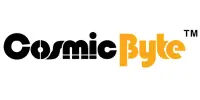The ULTIMATE Guide to Selecting the Ideal Gaming PC

Since there are so many alternatives on the market, choosing the ideal gaming PC can be a daunting endeavor. Technological developments, the growing popularity of competitive gaming, and the growing need for high-quality graphics are the main forces behind this progression. Whether you’re a casual gamer, a competitive player, or a content creator, understanding your gaming needs, budget, and the various components that make up a gaming PC is crucial. This comprehensive guide will walk you through the process of choosing the best gaming PC for your needs in 2024.
The Evolution of Gaming PCs
The 1990s: The Dawn of Gaming PCs
During the 1990s, gaming PCs began to emerge as distinct entities from regular personal computers. This era saw the introduction of dedicated graphics cards, significantly improving gaming performance. Games like Doom and Quake pushed the envelope of what was possible, driving demand for better graphics and faster processors.
The 2000s: The Rise of Custom Builds
The early 2000s marked a significant shift towards custom-built gaming PCs.This period also saw the rise of online multiplayer games, which further increased the demand for powerful hardware capable of handling complex graphics and network processing. The rise of custom builds also led to the creation of budget gaming PCs that offered solid gaming performance at lower prices.
The 2010s: VR and High-Definition Gaming
Fast developments in both hardware and software-defined the 2010s. Playing video games in high definition has become the standard, with resolutions like 1080p and 4K appearing more frequently. Virtual reality (VR) also entered the mainstream, requiring even more powerful PCs to deliver smooth and immersive experiences. For serious gamers, GPUs like AMD’s Radeon series and NVIDIA’s GTX and RTX series became indispensable.
The 2020s and Beyond: The Era of Ray Tracing and AI
Today, gaming PCs are more powerful than ever, thanks to advancements in technologies like ray tracing and artificial intelligence (AI). Realistic lighting and shadows can be achieved with ray tracing, while AI solutions like NVIDIA’s DLSS (Deep Learning Super Sampling) enhance performance without sacrificing visual quality. As we move further into the 2020s, the line between gaming PCs and professional workstations continues to blur, with high-end systems capable of handling gaming, content creation, and complex simulations with ease.
The Versatility of Gaming PCs
Multi-Tasking Powerhouses
Gaming PCs are made to manage several things at once. Whether you’re gaming, streaming, editing videos, or working on complex design projects, a gaming PC can handle it all without breaking a sweat. For professionals who need a strong machine for their work, this makes them perfect.
Future-Proofing
Investing in a gaming PC ensures that you are equipped with the latest technology, which can handle future software and game releases. Because of this future-proofing feature, you won’t need to upgrade your PC frequently, which will ultimately save you money.
Understanding Your Gaming Needs
Gaming Preferences
Casual Gaming
For casual games like The Sims or Minecraft, a mid-range gaming PC is sufficient. These games don’t demand the highest specs but still benefit from good performance.
- Example: The Sims 4 requires a minimum of an Intel Core 2 Duo processor, 4GB of RAM, and an NVIDIA GeForce 6600 graphics card. A mid-range gaming PC will handle these requirements easily.
Competitive Gaming
For competitive games like Fortnite or Call of Duty: Warzone, you’ll need a high-performance PC with a fast CPU and GPU to achieve higher frame rates and lower latency.
- Example: Fortnite players benefit from an Intel Core i7 processor, 16GB of RAM, and an NVIDIA GeForce GTX 1060 graphics card. Reaction times and general performance can be enhanced with higher frame rates.
AAA Titles and VR Gaming
Graphically demanding games like Cyberpunk 2077 or VR gaming require top-tier gaming PCs with the latest hardware. VR gaming, in particular, demands a PC that can handle the additional load of rendering immersive environments.
What Type of PC is Best for Gaming?
The best type of gaming PC depends on your specific needs:
- Graphics Card (GPU): Essential for smooth gameplay, especially in high-resolution settings. Popular options include NVIDIA’s GeForce RTX series and AMD’s Radeon RX series.
- Processor (CPU): A strong CPU is crucial for both performance and multitasking. Intel Core i5/i7 or AMD Ryzen 5/7 are solid choices.
- RAM: 8GB of RAM is the minimum, but 16GB is recommended for more demanding games and multitasking.
- Storage: A combination of SSD for fast load times and HDD for additional storage is ideal.
- Cooling: Adequate cooling is necessary to maintain performance and system longevity.
Which PC is Best for GTA 5?
For GTA 5, you need a PC with a capable GPU, a robust CPU, and sufficient RAM:
- Graphics Card: ASROCK RX6600 CLD 8G or AMD Radeon RX 7600 Steel Legend 8GB OC or better.
- Processor: Intel Core I5-14400F Processor or AMD Ryzen 5 9600X or better.
- RAM: 16GB is recommended.
- Storage: An SSD with at least 60GB of free space for faster load times.
Is 50k Enough for a Gaming PC?
A budget of ₹50,000 can get you a decent entry-level gaming PC, though trade-offs may be necessary:
- Graphics Card: Entry-level models like Zotac GTX 1650 4GB or ASRock RX 550 Phantom Gaming 4GB.
- Processor: Mid-range options such as Intel Core i3-12100F or AMD Ryzen 3 4100.
- RAM: Typically 8GB, though 16GB is preferable if possible.
- Storage: A 256GB SSD or a combination of a smaller SSD and HDD.
Can a Gaming PC Be Used for Work?
Yes, gaming PCs are versatile and can handle work tasks efficiently:
- High Performance: Suitable for demanding applications like video editing and graphic design.
- Multi-tasking: Ample RAM and fast storage make multitasking easier.
- Graphics Capabilities: Beneficial for tasks requiring high-resolution graphics or rendering.
Intel CPU vs. AMD Processor for Gaming
- Intel Processors: Known for strong single-core performance, ideal for some gaming scenarios. Models like Intel Core i5 and i7 are popular.
- AMD Processors: Provide better multi-core performance at competitive prices. AMD Ryzen 5 and 7 are excellent choices for both gaming and multitasking.
Is 8GB RAM Enough for Gaming?
While 8GB of RAM is sufficient for many games, 16GB is generally recommended for a smoother experience and to future-proof your system.
Why is PC Gaming Better?
PC gaming often offers:
- Higher Performance: Achieve higher resolutions and frame rates with the right hardware.
- Customizability: Tailor your PC with upgrades and custom components.
- Modding and Custom Content: Access a broader range of mods and custom content.
- Multitasking: Handle multiple applications simultaneously.
Best Gaming PCs: Recommendations
For pre-built systems, consider:
- Asus Gaming PCs: Reliable and high-performing, with models like the Asus ROG series.
- Custom Builds: For a tailored experience, building a custom PC allows for specific component choices and upgrades.
Conclusion
Choosing the right gaming PC involves understanding your needs, budget, and the performance requirements of the games you play. From historical perspectives to current advancements, this guide provides a comprehensive overview to help you make an informed decision and enjoy an exceptional gaming experience.












































 AMD CPUs
AMD CPUs Intel CPUs
Intel CPUs





 AIO Liquid Coolers
AIO Liquid Coolers

 ATX Cabinets
ATX Cabinets mATX Cabinets
mATX Cabinets Mini-ITX Cabinets
Mini-ITX Cabinets




2 thoughts on “The ULTIMATE Guide to Selecting the Ideal Gaming PC”
Comments are closed.